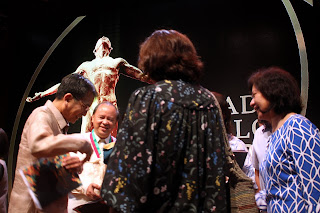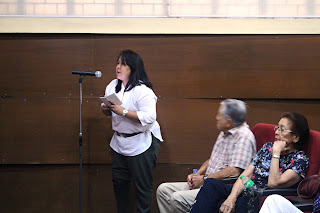The 2018 TWSC Writeshop
Third World Studies Center, Lower Ground Floor,
College of Social Sciences and Philosophy,
Palma Hall, University of the Philippines Diliman, Quezon City
11–13 October 2018
About the Writeshop
The Third World Studies Center (TWSC) is launching the 2018 TWSC Writeshop in continuing its commitment to build the capacity of early career researchers, junior faculty members, and graduate students in the social sciences. As a premiere social science research center in the College of Social Sciences and Philosophy, University of the Philippines-Diliman, the TWSC continues to develop critical, alternative paradigms to promote progressive scholarship by undertaking pioneering research and publishing original, empirically-grounded, and innovative studies.
Originally meant as a capacity-building workshop on social science research in 2010, the TWSC Writeshop transformed into a unique publication platform for early career researchers, junior faculty members, and graduate students in the social sciences. Since 2014, successful participants, called Writeshop fellows, were not only given the opportunity to interact with senior scholars, but also the opportunity to produce a publishable manuscript for TWSC’s internationally refereed journal Kasarinlan: Philippine Journal of Third World Studies.
The 2018 TWSC Writeshop sustains the manuscript-driven mentoring format in the form of intensive yet collegial small-group discussions with mentors, established scholars in their respective fields and the Kasarinlan editorial staff. The intensive three-day session will bring in line problematization, researcher positionality and ethics, and crafting meaningful narratives based on empirical work to equip the Writeshop fellows in making their own contribution to social science scholarship, i.e., a publishable work. In seeing through the TWSC Writeshop’s goal, the Writeshop culminates in the publication of successful manuscripts in a special issue in Kasarinlan. Fellows whose manuscript will be accepted for publication within one year or until October 2019 will receive a cash incentive of P20,000.00.
Who may apply
There will only be ten Writeshop Fellows. Preferred applicants are social science graduate students, early career researchers, and/or junior faculty members from any Philippine higher education institution.
What to submit
Applicants must be able to submit the following to twsc.updiliman@up.edu.ph on or before 31 July 2018:
- A 6,000–8,000 word unpublished paper (excluding end notes and references.) on any social science topic, authored solely by the applicant, inclusive of an abstract and a list of references, that can be developed into a full-length article for publication in the Center’s internationally refereed journal Kasarinlan: Philippine Journal of Third World Studies. The submitted work must not be under consideration in any other publication. The draft article must demonstrate theoretical rigor and must be rooted in the author’s own empirical work. Submissions will be plagiarism-checked. Applicants are encouraged to follow this format (https://bit.ly/2jm8jX5).
- Soft copy of latest curriculum vitae with references.
What to expect after submission of requirements
- All submissions will undergo plagiarism check by the Kasarinlan editorial staff. Submissions without plagiarized contents will undergo preliminary editorial evaluation by the Kasarinlan editorial staff. Ten submissions will be selected.
- The ten applicants whose submissions were selected will be notified by email, including the terms of reference (TOR) for the Writeshop. They must convey their full understanding, agreement, and acceptance of the TOR by sending the signed TOR to twsc.updiliman@up.edu.ph.
- There is no registration fee. Successful applicants based outside of Metro Manila may apply for accommodation and airfare subsidies in the form of reimbursement and subject to government accounting rules. This excludes baggage fees, taxi fare, travel tax, and the likes. To apply for subsidies, send a signed letter addressed to the Director, Dr. Ricardo T. Jose at twsc.updiliman@up.edu.ph stating your reasons for availing them.
What to expect during the writeshop
Day 1
Activity 1: Introduction of the Writeshop Fellows
Objective: To create a collegial atmosphere among the fellows.
Activity 2: Keynote speech on the state of the art of social sciences in the Philippines
Objective: To establish the research and publication milieu in which early-career researchers can stake their claim as potential authors.
Activity 3: Plenary Lecture on social science research and publication
Objective: To set the general parameters of problematization, research positionality, and ethics in social science research and publication.
Activity 4: Small-group discussion on writing a manuscript in the social sciences
Objective: To provide a platform for the fellows where they can engage mentors and members of the editorial staff in a dialogue on the basics of manuscript writing in the social sciences.
Conduct of small-group discussion: The fellows will be assigned to groups with a mentor and a member of the editorial staff each. The mentors will be provided with a copy of the manuscript before the Writeshop to give substantive feedback. The discussion will revolve around, but will not be limited to: 1) What research question/s does the manuscript seek to answer?; 2) What are its key arguments?; 3) What are its strengths and weaknesses?; 4) What outline/structure can be developed to strengthen the manuscript in making an original contribution in the existing literature?
Day 2
Activity 5: Small-group discussion on revising a manuscript in the social sciences
Objective: To provide a platform for the fellows where they can engage mentors and members of the editorial staff in a dialogue on transforming their draft manuscript for publication in Kasarinlan.
Conduct of small-group discussion: With the same group assignment, the discussion, this time, will revolve around, but will not be limited to: 1) Based on the first small group discussion, what is/are the research question/s that the manuscript can problematize and answer?; 2) What revised outline/structure have you chosen in revising your manuscript?; 3) What are its strengths, its foreseeable challenges, and how can they be addressed?
Activity 6: The Kasarinlan Editorial Process
Objective: To familiarize the fellows on the Kasarinlan editorial process, with emphasis on plagiarism and Chicago Manual of Style referencing.
Day 3
Culminating Activity: Writeshop Fellows’ Plenary Session
Former Writeshop fellows will also be invited.
Closing Activity: Awarding of Certificates
(Applicants who will not be able to attend the entire three-day writeshop, will not be provided a certificate.)
For inquiries
Elinor May K. Cruz
University Research Associate
Third World Studies Center
University of the Philippines Diliman
Lower Ground Floor, Palma Hall
University of the Philippines
1101 Diliman, Quezon City
Email: twsc.updiliman@up.edu.ph
Telephone: +63 2 981 8500 ext. 2488
Telefax: +63 2 920 5428
Mobile: +63926 710 2926
For updates

















































